“Created sick, commanded to be sound”
(Fulke Greville, Mustapha, 1609)I.
I often exaggerate, in my imagination, the relationship between feelings and the body. Of course such a relationship is real: hairs stand on end; blood runs cold, or flushes the cheeks, or swells in extremities; the heart rate quickens; sweat beads; hands tremor or become clammy; and on, and on, and on. But my mind had a tendency to create new symptoms and metaphors, like something from a Latin American novel. Once I dated a girl full of absences and excuses and imagined I’d swallowed a tiny black watermelon seed that was growing in my stomach with fearful gravity. In the spring of 2007 I was sure that my recurring nightmares were the cause of my nosebleeds although in retrospect it may have just been hay fever. Lately I imagine my nails lengthening, as they’re thought to do after death, like antennae probing blindly in darkness; on sleepless nights I lie supine and sweaty and watch the keratinous appendages extend from my fingertips and try not to wonder what they seek. It isn’t true, anyway, about the nails: they don’t grow after death, it is only the skin that shrinks from them.
II.
Maybe this is not in my imagination after all, for haven’t you wondered about the feelings that press themselves into ugly dark raisins on foreheads? There are reasons why some must believe in divine intervention: not only because of misery and oppression and hopelessness but also heat and boredom and wasting, because of empty days, empty time that stretches ahead without end and is broken up and filled in with prayers.
Some intervention seekers cast votes, and some cup palms, and some do both. And some of the latter were cut down like trees, and others were swallowed up inside concrete bellies and never returned, and still others smelled their own flesh singe and burn and came back changed. They are not exactly like those skittish dogs with sad eyes who wander dirty streets, for those who came back changed are not afraid but numb. Their wounds healed over with scar tissue and calluses which protect what is underneath from feeling more pain, like the calluses on their brows. Their signs are many: the callus, the unseeing eyes, the bent stature. They are like a seed kept from light, which sends forth its shoot but cannot strengthen it, and grows crookedly.
III.
In sickness the body is divided against itself and comes apart. The sutures between bones unravel and the joints disarticulate, the skin becomes a coffin housing disaggregated parts. Do the body’s very cells betray it through cancerous multiplication? Do foreign microbes infiltrate the body from without and destroy it from within? Is it all the result of earlier trauma, of violence visited upon the body in childhood? Such pathological questions all presume a body once healthy, once whole, but perhaps this was never the case: bodies are brought into the world screaming in pain, rendered discrete by the blade which separates them from another body. With pain and separation as constitutive, definitional elements of autonomy and integrity, what other possibilities could be expected? It is not that one body is sick and must be treated; the allure of the body itself, with its myths of health and unity, must be abandoned.
* Alexander Jabbari is a PhD candidate in Comparative Literature at the University of California, Irvine
Painting : Dulle Griet (Dull Gret) Artist: Pieter Bruegel the Elder
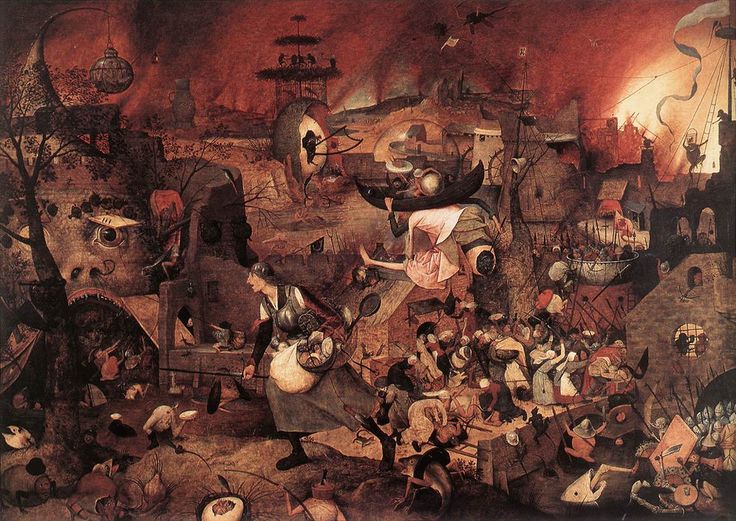
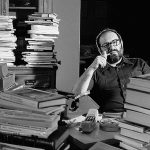
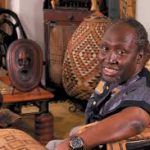
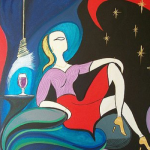
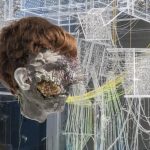
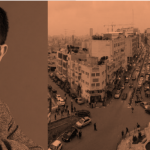
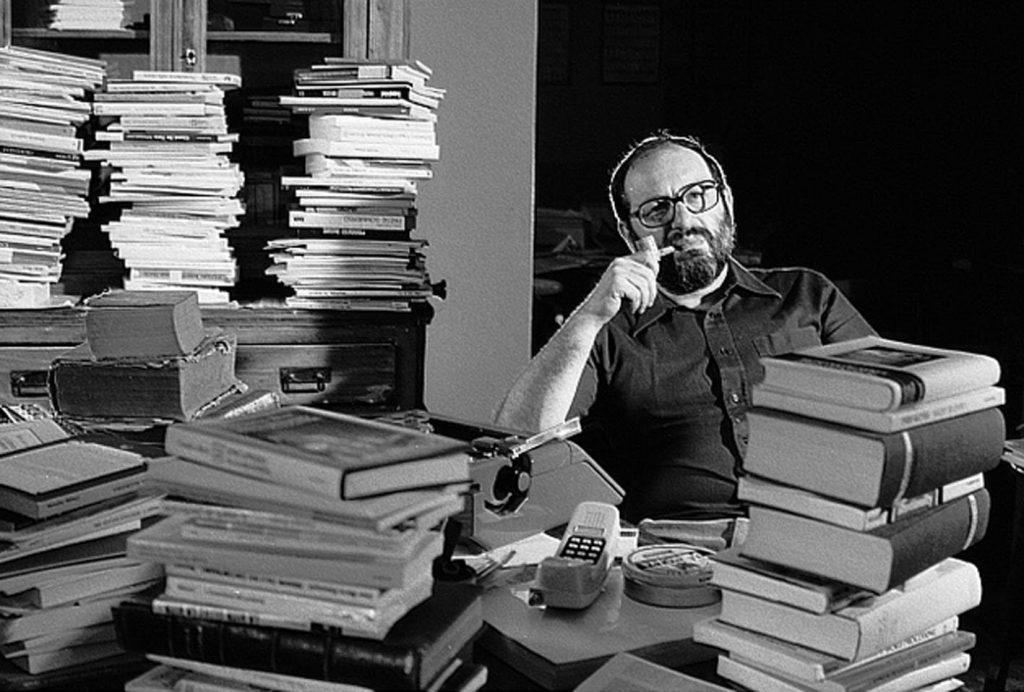
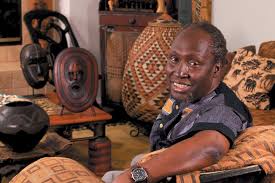
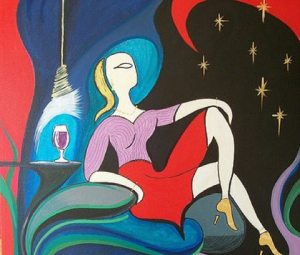
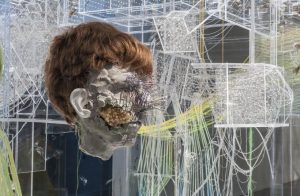
The Long Way – Excerpt from Guapa / Saleem Haddad
My Voice / Remah Jabr
My Name is Jbene